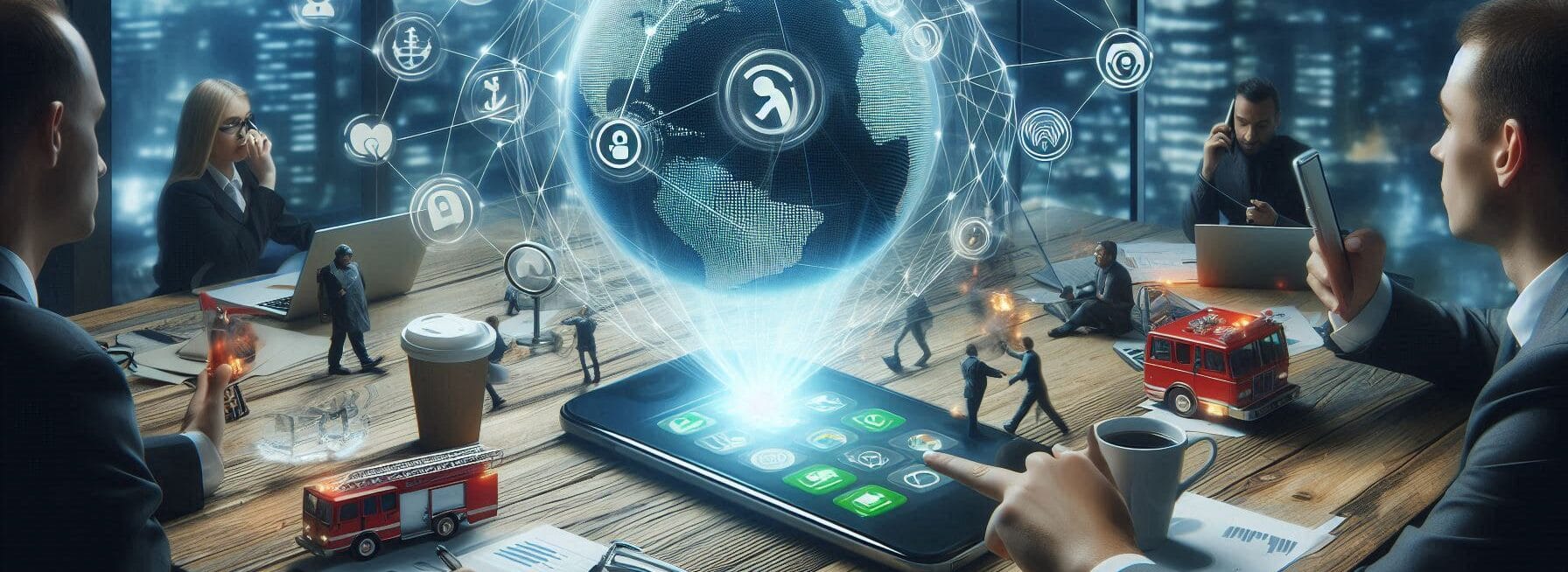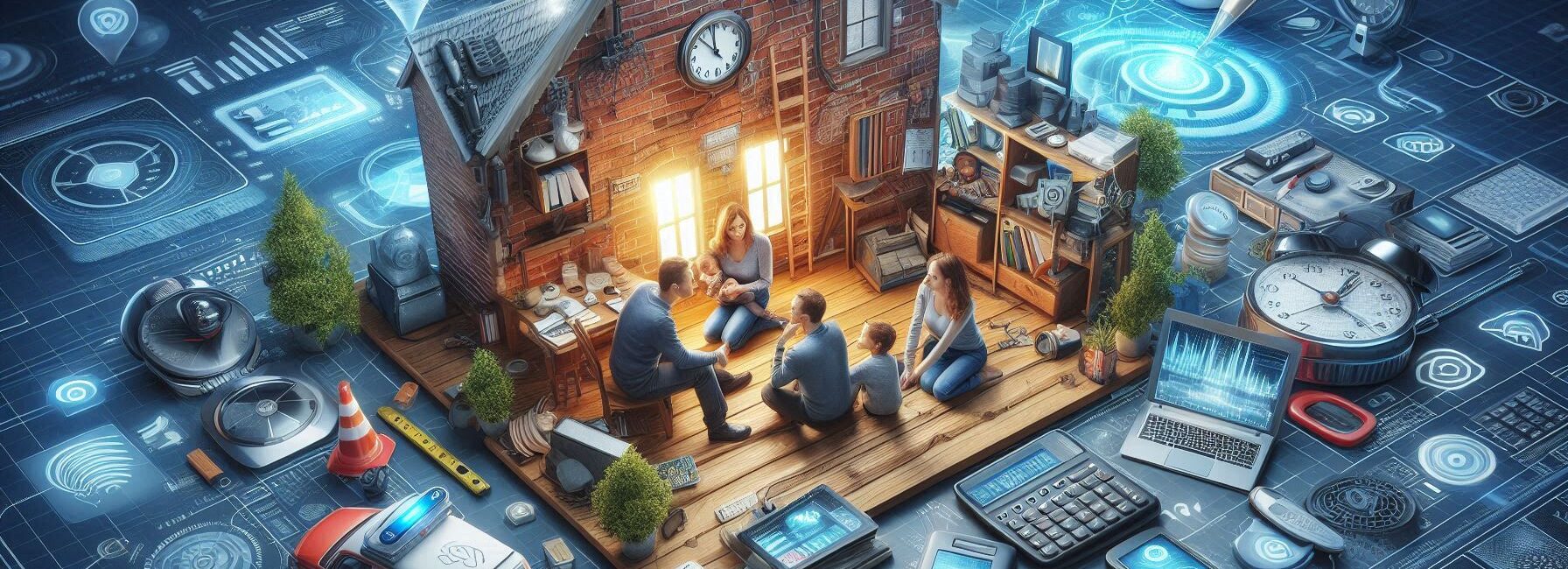Last Updated on November 2, 2025 by Kevin Collier
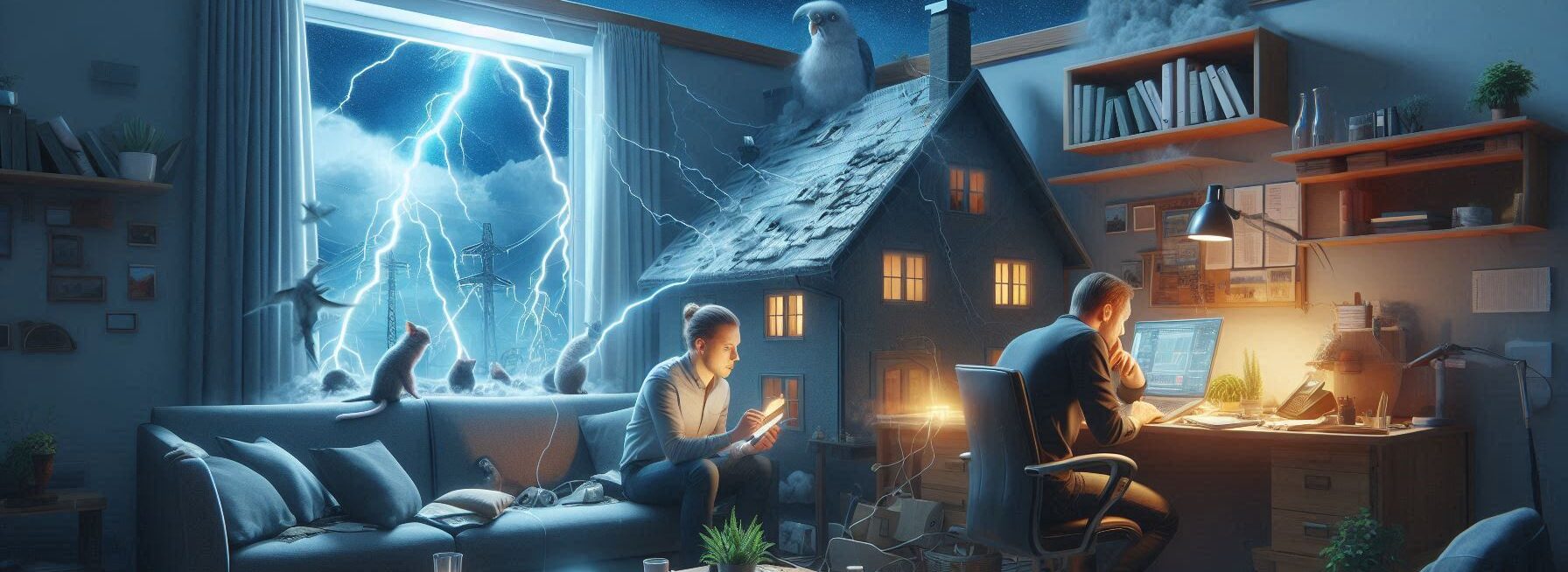
Top Takeaways and Key Concepts
– Create a communication plan with family and friends for power outages.
– Use portable chargers to keep essential devices powered during emergencies.
– Invest in a solar-powered or hand-crank radio for news updates.
– Keep a written list of important contacts in case digital methods fail.
– Establish a meeting point for your family in case of disconnection.
Picture this: you're all snuggled up on the couch with snacks and completely into your favorite show. Then—boom! The lights flicker, the TV goes out, and suddenly you're staring into a black hole. What just happened?
Please Note: This post may contain affiliate links. If you click one of them, we may receive a commission at no extra cost to you. As an Amazon Associate, I earn from qualifying purchases.
You can't surf through social media or watch humorous kitten videos anymore. It seems a little odd, doesn't it? It's like being stuck in a game where you can't get any power-ups. But don't worry! We can all get through this power outage.
First, look at your flashlight. You probably have it in a drawer someplace, mixed in with all those old batteries and take-out menus. It feels like a treasure quest to find that flashlight, doesn't it? Not a big deal if it needs batteries. This is your opportunity to shine! In a literal sense.
Light your candles if you have them. It makes your living area feel warm and inviting, like a small party. Just watch them. We don't want a “firework show” to happen in the house, do we?
Think about playing games. Do you remember the board games that are now gathering dust? It's time now! Get some friends or family together and do something fun. You might launch a contest. When the lights turn back on, the winner receives the biggest piece of pizza!
It's wonderful to take a break and talk sometimes. You can ask questions, tell tales, or even make up silly ones. What if Mr. Whiskers was a fantastic spy in secret? What would he do? This is a terrific time to get to know one other, laugh, and make memories.
Go outside for a bit if it's safe. Pay attention to the sounds around you. The breeze might tell secrets. Or maybe the crickets are playing music. Fresh air can feel fantastic when everything else is dark.
Staying in touch is hard, but it doesn't have to be dull. Welcome the unexpected! You might discover that losing power might be a great time. The way you look at it is what matters. My friend, adventure is waiting for you! Let's take full use of it!
*** Shop for Survival Gear - Tools - Kits ***
Survival Gear - Bags and Backpacks - Knives - Boots/Footwear - Communication
Outdoor Cooking - Gloves - Hydration - Dry Boxes - Water Filtration Systems
Tents - Sleeping Bags - First Aid Kits - Multi-Tools - Flashlights - Fire Starters
Navigation - Survival Food - Night Vision - Headlamps - Stun Guns - Binoculars
Understand Your Communication Options
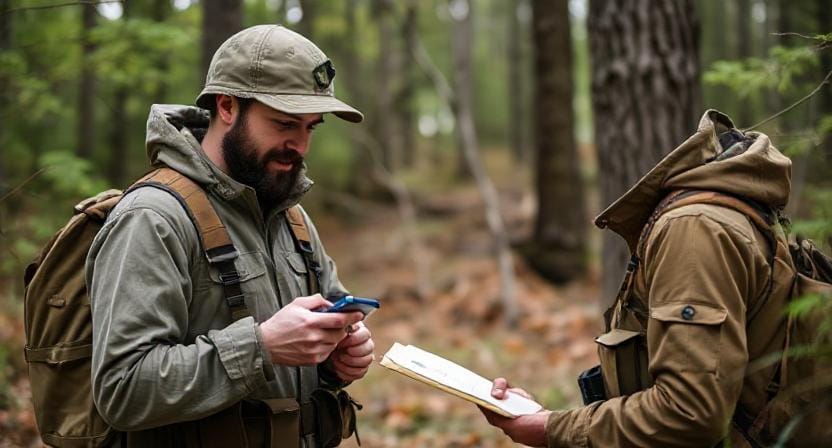
Let's talk about how we communicate when the power is out. Honestly, most people think they can’t live without their smartphones. But guess what? There are plenty of alternatives!
For starters, let’s consider good old-fashioned landlines. If you still have one (and aren’t using it as a fancy paperweight), it could be your best friend during an outage because they often work even when the power doesn’t.
Then again, if you're one of those adventurous types who has gone completely wireless and ditched that ancient technology, fear not! Two-way radios are another great option for short-range communication.
They’re like walkie-talkies on steroids—perfect for keeping in touch with family members while navigating around your house or yard during an emergency.
Battery-Powered Devices Are Your Lifeline
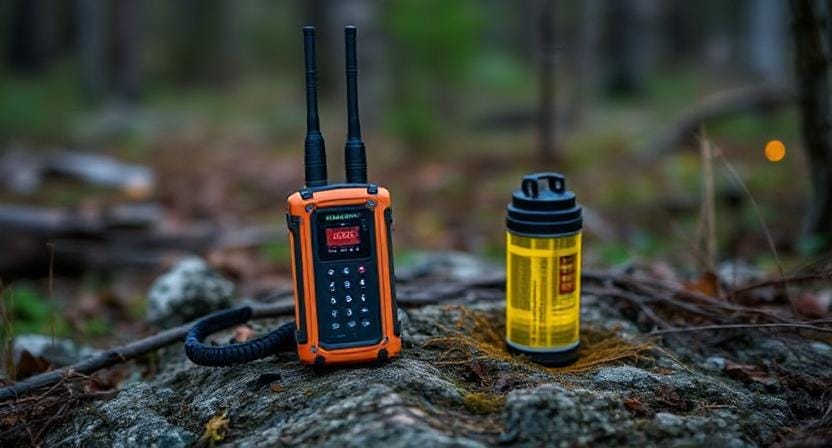
Speaking of technology, battery-powered devices will be your best buddies when everything else fails. Let’s see… portable chargers can keep your phones alive long enough for a quick “I’m okay!” text to loved ones. After all, nothing says “I’m surviving” quite like sending a thumbs-up emoji from your darkened living room.
Interestingly enough, solar-powered chargers are also making waves in the survivalist community. These nifty gadgets harness sunlight to charge up your devices—even if it feels like you’re waiting for a snail to cross the road while you watch them charge slowly under cloudy skies!
And don’t forget about good ol’ flashlights! Not only do they help navigate through pitch-black rooms where furniture seems to multiply overnight; they also serve as makeshift signaling devices if someone outside is frantically waving their arms trying to get noticed.
Create a Communication Plan

Having a solid communication plan is crucial before disaster strikes—kind of like knowing where the nearest bathroom is on a long road trip (trust me; you'll thank yourself later). Gather everyone in your household and discuss how you'll stay connected during emergencies.
Decide on meeting points should you get separated—perhaps that tree in front of the house that always looks like it needs a haircut? Also establish backup methods for communication: will you use radios? Signal flares? Smoke signals? Okay, maybe skip the smoke signals unless you're feeling particularly dramatic!
It might sound silly now but having these conversations beforehand can save lots of confusion later on—and prevent Aunt Edna from yelling at everyone when she realizes her phone isn’t working!
Use Social Media Wisely
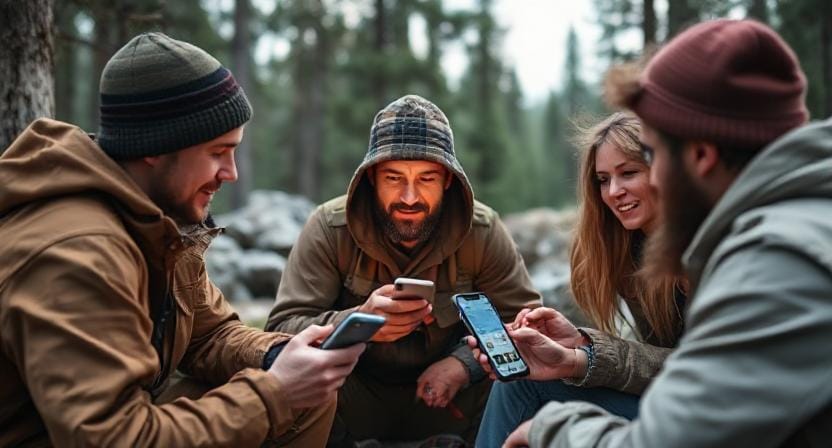
Honestly speaking, social media can still play a role in staying connected during outages—if only briefly! Many people forget that Wi-Fi routers usually depend on electricity—but there are ways around this problem too!
If you're lucky enough to have access to generators or portable hotspots powered by batteries or solar energy (cue superhero music), then social media could become an avenue for updates and reassurance among friends and family.
However—and this is important—you’ll want to limit usage so that others can communicate too. No one wants their cousin posting pictures of last weekend’s barbecue while everyone else is trying desperately just to send “help!”
Keep Emergency Contacts Handy
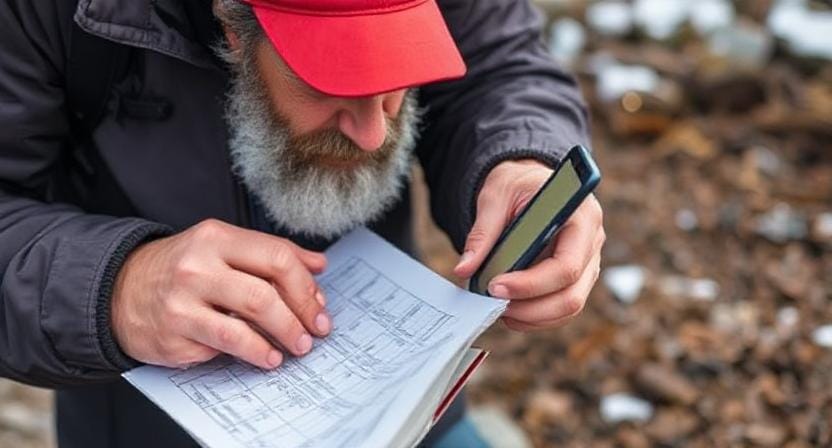
Let’s face it: when chaos reigns supreme and panic sets in over lost connections (not unlike losing track of which remote controls which device), it's easy to forget important numbers. So here’s my advice: write down critical contact information ahead of time!
Create an emergency contact list featuring family members' phone numbers alongside essential services such as local hospitals or fire departments—this way; no matter how dark things get outside—or inside—you’ll always have access without needing Google search results.
To fair warning though: try not writing these down on sticky notes scattered throughout the house unless you're prepared for scavenger hunts every time there’s trouble!
Invest in Backup Power Sources
Finally, let’s chat about backup power sources because let's be honest—the sun won’t shine forever (even though we wish it would!). Investing in generators or battery banks ensures that even during extended outages; you'll remain somewhat connected—or at least able to make coffee without starting fires with sticks like our ancestors did!
Portable generators come handy too but remember they require fuel so stock up wisely depending on how often you'd need them running—not just for powering electronics but also keeping food fresh until normalcy returns after whatever crazy event took place outside!
So, there you have it—a comprehensive guide on staying connected when Mother Nature decides she wants us unplugged from society temporarily!
Frequently Asked Questions
Why should I create a communication plan before a power outage?
A communication plan ensures everyone knows how to reach each other and where to meet if mobile devices stop functioning.
What devices help me stay powered when electricity is down?
Portable battery banks and solar chargers can keep phones and small electronics running until power returns.
How can I receive news updates without electricity?
A solar-powered or hand-crank radio allows access to emergency broadcasts even when the grid is offline.
Why is writing down important contacts useful?
A written contact list ensures you can call or reach key people if phones lose stored data or batteries die.
Can landlines work during a power outage?
Traditional landlines often still function during a blackout because they run on separate power systems from home electricity.
Are two-way radios helpful in emergencies?
Two-way radios allow short-range communication with household members or neighbors when cell service is unavailable.
Why should families choose a meeting point?
A designated meeting location prevents confusion and ensures everyone reunites if communication methods fail during an outage.
Suggested Resources:
Ham Radio Basics
https://www.arrl.org/ham-radio-basics
Emergency Preparedness Guide
https://www.ready.gov/prepare
Solar Power Solutions
https://www.energy.gov/articles/how-solar-energy-works

Kevin Collier is a seasoned survivalist and expert in prepping and homesteading, contributing to WiseSurvive.com. With a deep-rooted passion for self-sufficiency and outdoor survival skills, Kevin shares practical advice, strategies, and resources to help individuals prepare for any challenge. His informative articles cover a range of topics, from essential survival techniques to sustainable living practices, empowering readers to thrive in any situation. Whether you're a novice or a seasoned prepper, Kevin's insights will inspire you to take charge of your readiness and build resilience for the future.

